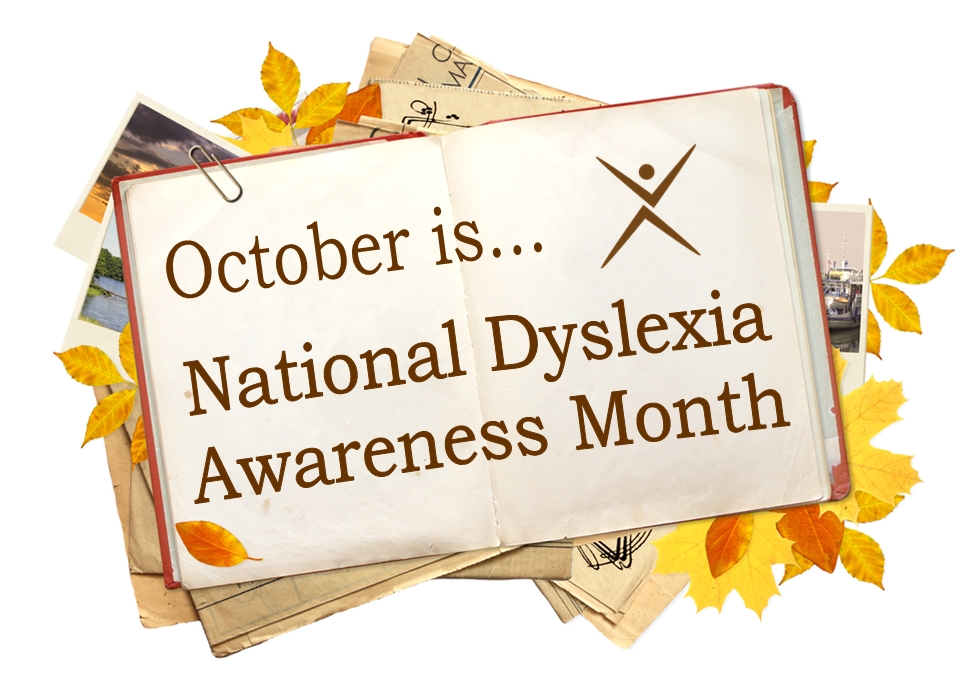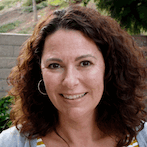
by PRIDE Reading Program Admin | Jan 12, 2015 | Auditory Processing Disorder, Pride Orange County
An Orange County tutoring center is offering help for kids that have auditory processing disorder.
Children with auditory processing will often struggle in a classroom setting, especially in the areas of reading, comprehension and language skills. These children are unable to process the information they hear in the same way as others because something adversely affects the way their brain recognizes and interprets sounds, most notably the sounds composing speech.
“Auditory processing disorder affects about 5% of school-age children,” says Karina Richland, owner of PRIDE Learning Centers. “Reading and comprehension are very difficult for children diagnosed with auditory processing and these children end up struggling so much in school because of it.”
PRIDE Learning Center teaches children with auditory processing disorder how to read, write and comprehend using a multisensory method called the Orton-Gillingham approach. It is an intensive one-on-one reading program that stresses teaching the entire structure of written English through a systemized teaching of letters and their corresponding sounds.
“The Orton-Gillingham approach is highly successful for kids struggling with auditory processing because it is so structured, repetitious and multisensory,” says Richland. “ Our kids use all of their senses when they learn and are therefore better able to store and retrieve the information. A child, for example might see the letter B, say its name and sound, and write it in the air all at the same time.”
All of the reading specialists at PRIDE Learning Center are credentialed teachers with strong special education backgrounds and are Orton-Gillingham Certified.
PRIDE Learning Centers are located in Mission Viejo, Newport Beach and San Clemente. For more information contact May Dabbah at 949-484-0230 or visit the website at www.pridelearningcenter.com

by PRIDE Reading Program Admin | Nov 14, 2014 | A PRIDE Post, Parent-Teacher Conference
Finally it’s parent-teacher conference time and you get that chance to sit down face-to-face with your child’s teacher. You have a lot that you want to talk about, and a limited amount of time. The better prepared you are going into the meeting, the more beneficial the meeting will be for both you and the teacher. Here are some questions you can think about and then ask your child’s teacher at the next upcoming conference to elicit information and make the rest of your child’s year more successful.
How is my child doing keeping up in class?
Start out by asking the teacher how your child is doing overall. Is he or she ahead, behind, or right on target indicated by grades compared with the average student at the national level? You might want to gain information about this level your child is at. Also ask the teacher if she or he feels that your child will remain at this level- and why.
What information and skills will my child be expected to accomplish by the end of the year?
All children, whether struggling, average, or gifted need to meet higher academic standards and expectations in school. Ask the teacher what your child will have mastered by the end of the school year in reading, math, science and social studies. If your child has already achieved those goals, ask the teacher if there are more challenging academic standards in place in this classroom. If the teacher answers “yes” then ask to please see these. If your child is struggling with the coursework then discuss with the teacher what specific remediation and support is your child receiving. Again ask to see the specific program and what is actually taking place to assist your child in progressing forward.
How are you assessing and monitoring my child’s progress?
Your child needs to be evaluated and monitored during the entire school year to determine progress, remediation needs and advancement of subject areas. During your conference ask your child’s teacher what kind of information he or she is using to evaluate your child and how often these assessments are conducted.
As a parent, what can I do at home to stay involved in my child’s academic progress?
Studies have shown that children who receive regular educational support and encouragement at home do better at school and tend to excel beyond the average.
All teachers welcome and encourage parental involvement, so now is the time to ask how you can help your child at home improve his or her areas of weakness and build on his or her strengths. Ask your child’s teacher to recommend some outside enrichment activities to support his or her learning aside from home and school.
Does my child have friends?
Academics are not the only subjects you will want to discuss with your child’s teacher. Find out how well your child interacts with others, participates in groups and shows value and respect to the teacher and classmates. Talk to the teacher about what you can do to reinforce these qualities, along with what academic lessons you can teach at home to help your child become a more well rounded person.
At the end of the meeting you will want to clarify and summarize all the points discussed during the conference. This way both you and the teacher are better able to develop a mutual understanding and agreement.
Karina Richland, M.A., E.T. is the Managing Director of Pride Learning Centers, located in Los Angeles and Orange County. A former teacher for Los Angeles Unified School District, Ms. Richland is a reading and learning disability specialist. Ms. Richland speaks frequently to parents, teachers, and professionals on learning differences, and writes for several journals and publications. You can reach her by email at karina@pridelearningcenter.com or visit the Pride Learning Center website at: www.pridelearningcenter.com

by PRIDE Reading Program Admin | Oct 14, 2014 | Dyslexia
October is Dyslexia Awareness Month and PRIDE Learning Center and the International Dyslexia Association is sponsoring an event in San Clemente to help parents, teachers and individuals affected by dyslexia.
On Thursday, October 23rd at 7:00pm, the International Dyslexia Association will be hosting a large Dyslexia Awareness Event in San Clemente. The event will be held at Our Lady of Fatima Church located at 105 North La Esperanza. The evening will include speakers, information, resources and support.
PRIDE Learning Center, a local dyslexia tutoring company, will help the San Clemente community by participating in this October dyslexia event. This local learning center will have a booth at the event providing free assessments, free tutoring coupons, dyslexia resources and gift baskets.
We support Dyslexia Awareness Month,” says Karina Richland, owner of PRIDE Learning Centers. “We want to help increase the awareness of dyslexia in the South Orange County communities and advocate for the needs of individuals with dyslexia and their families,” says Richland.
Dyslexia affects a large part of the population. 1 out of every 5 children has symptoms of dyslexia, including slow or inaccurate reading, poor spelling and poor writing. Dyslexia is a language-based learning disability and is not due to a lack of intelligence or a desire to learn.
“We are so excited to participate in this event and help bring dyslexia awareness to the forefront and show that we at PRIDE Learning Center are here to help the children, families, teachers and professionals in the South Orange County community,” says PRIDE Learning Center owner, Karina Richland.
PRIDE Learning Center has four locations, San Clemente, Mission Viejo, Newport Beach and Redondo Beach. For more information contact PRIDE Learning Centers at 866-774-3342 or visit the website www.pridelearningcenter.com.

by PRIDE Reading Program Admin | Jul 8, 2014 | A PRIDE Post, Autism, Reading Comprehension
Reading comprehension help for students with autism may requires a few strategies that YOU the parent or teacher can easily do at home or in the classroom. Studies consistently show that children who are encouraged to use visual imagery have improved performance on tests of comprehension and recall of materials. For many children with autism, this skill of using mental imagery in text is an extremely challenging task. Nevertheless, this method can be taught and mastered.
Reading Comprehension help for students with autism involves VISUALIZATION. This is one of the most effective ways to help improve reading comprehension in a child with autism. How do you teach this? Well …. try to encourage the child to form mental pictures of the events described in the stories read.
TEACHING VISUALIZATION…
An autistic child struggling with reading comprehension will benefit from a teaching method geared to make sure that he understands and thinks about word meaning as he reads and that provides a specific scheme for visualizing. For example, a teacher might stop a student after reading a few lines and encourage the student to form a mental picture with a question such as “what do you think that looked like?” This allows the student to build imagery directly related to the concepts conveyed in the reading and at the same time to continue to focus on the printed symbols on the page.
- Use prior knowledge and pre-reading strategies. “Look at the title. Think about what the story might be about.”
- For stories, the student can visualize what is happening at the beginning, middle, and end of the story. “Read or listen to the first few sentences. Remember to get a picture in your head for each sentence. Do not continue until you get a moving picture in your head, kind of like a movie.”
- For informational text, student can think about key words and visualize the content they are learning. “Read or listen to this paragraph. Remember to get a picture for each sentence. Ask me if you do not understand a word.”
- Students should be asked to explain their images. “Can you describe what you see as you are reading.”
- Students should compare the picture in their minds with what they are reading. “Tell me as much information as you can remember.””
Integrating the child’s own artwork with story reading, such as having the child draw a map or diagram of events, or represent the story in cartoon form, is also useful. They can also read an entire passage and then create an illustration that represents the main idea of the paragraph. To help the child decide which ideas are most important, provide them with some guidelines: “If this story were to be made into a movie, which scenes absolutely must be included for the story to make sense. Which scenes would be funny, sad, etc.”?
Reading Comprehension help for students with autism involves your help and guidance in teaching visualization strategies. Good Luck – and let us know how they worked!
__________________________________________________________________________________________________

Karina Richland, M.A. is the Founder of PRIDE Learning Centers, located in Los Angeles and Orange County. Ms. Richland is a reading and learning disability specialist and speaks frequently to parents, teachers, and professionals on learning differences. You can reach her by email at karina@pridelearningcenter.com or visit the PRIDE Learning Center website at: www.pridelearningcenter.com

by PRIDE Reading Program Admin | Mar 20, 2014 | Autism
On April 2, 2014, Autism Speaks, the world’s leading autism advocacy organization, promotes their annual event called Light it Up Blue. This is a global initiative that kicks-off Autism Awareness Month. In honor of this day, many iconic landmarks, hotels, sporting venues, concert halls, museums and retail stores are among the many communities that take part in Light it Up Blue. Autism Speaks is dedicated to funding research into the causes, prevention, treatments and a cure for autism.
PRIDE Learning Center, will help raise awareness by participating in the Light it Up Blue campaign. All four Learning Centers will be decorated in blue with displays and handouts about autism on Wednesday, April 2, 2014 and there will be blue treats for the entire community. In addition, the employees at PRIDE Learning Center will be dressed in blue.
“We support the Light it Up Blue campaign,” says Karina Richland, owner of PRIDE Learning Centers. “We want to help increase the awareness of Autism Spectrum Disorders in the Orange County and Los Angeles communities and advocate for the needs of individuals with autism and their families” says Richland.
New autism statistics from the U.S Center for Disease Control and Prevention (CDC) identify around 1 in 68 American children as on the autism spectrum. Studies also show that autism is four to five times more common among boys than girls. An estimated 1 out of 42 boys and 1 in 189 girls are diagnosed with autism in the United States.
“We are so pleased and excited to participate in this event to bring autism awareness to the forefront and show that we at PRIDE Learning Center support research efforts to bring an end to this epidemic,” says PRIDE Learning Center owner, Karina Richland.
PRIDE Learning Center has four locations, San Clemente, Mission Viejo, Newport Beach and Redondo Beach, Ca. For more information contact PRIDE Learning Centers at 866-774-3342 or visit the website https://www.pridelearningcenter.com






